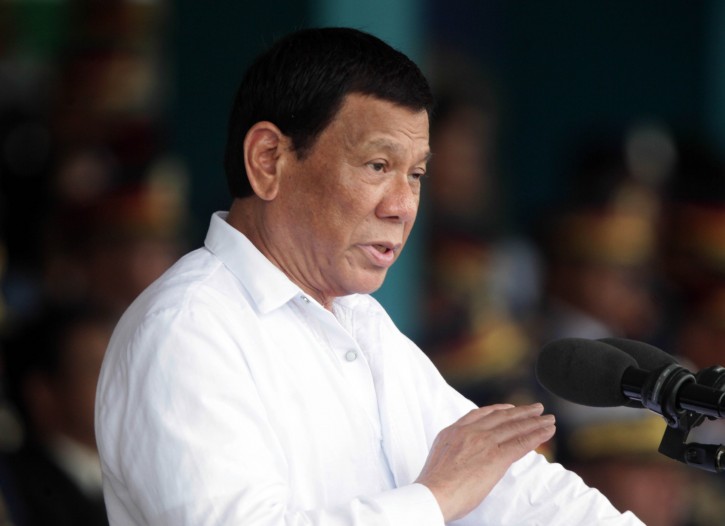
Manila – Philippine President Rodrigo Duterte has accepted an invitation to visit Israel next month in a sign of improving ties, which hit a sore spot early in his presidency when he compared his bloody anti-drug crackdown to Hitler and the Holocaust.
The Department of Foreign Affairs said Monday that Duterte will meet Israeli Prime Minister Benjamin Netanyahu during his Sept. 2-5 visit to discuss cooperation in labor, tourism, trade, agriculture, counterterrorism and law enforcement. Several accords are expected to be signed.
It will be the first visit by a Philippine president since diplomatic ties were established in 1957, the department said, adding that Duterte will be joined by a business delegation.
The Philippines has recently acquired Israeli-made arms such as Galil assault rifles and pistols for its 120,000-strong police force, which is at the frontline of Duterte’s battle against illegal drugs and other crimes, an official said.
Duterte’s visit “will highlight the enduring friendship between Filipinos and Israelis, which began when President Manuel L. Quezon opened the doors of the Philippines as a sanctuary to an estimated 1,300 Jewish refugees who were fleeing the Holocaust,” the department said.
Duterte drew outrage a few months after he took office in 2016 when he compared his anti-drug campaign to the Holocaust and said he would be “happy to slaughter” 3 million addicts. He later apologized.
Israel’s Foreign Ministry then said it was “unfortunate” that Duterte chose to invoke Hitler and the Holocaust in discussing his fight against illegal drugs.
Duterte acknowledged he erred in referencing what happened to Jewish people under Hitler.
“I mentioned the word Jewish and that was what was terribly wrong and for that I apologize,” Duterte said then, adding, “I’m not one of the racist members of this republic.”
The Nazis and their allies killed 6 million Jews during World War II as part of a campaign to obliterate European Jewry.
More than 4,500 mostly poor drug suspects have been killed in gunbattles with police under Duterte’s anti-drug crackdown, alarming Western governments, U.N. officials and human rights groups.
As reported by Vos Iz Neias
